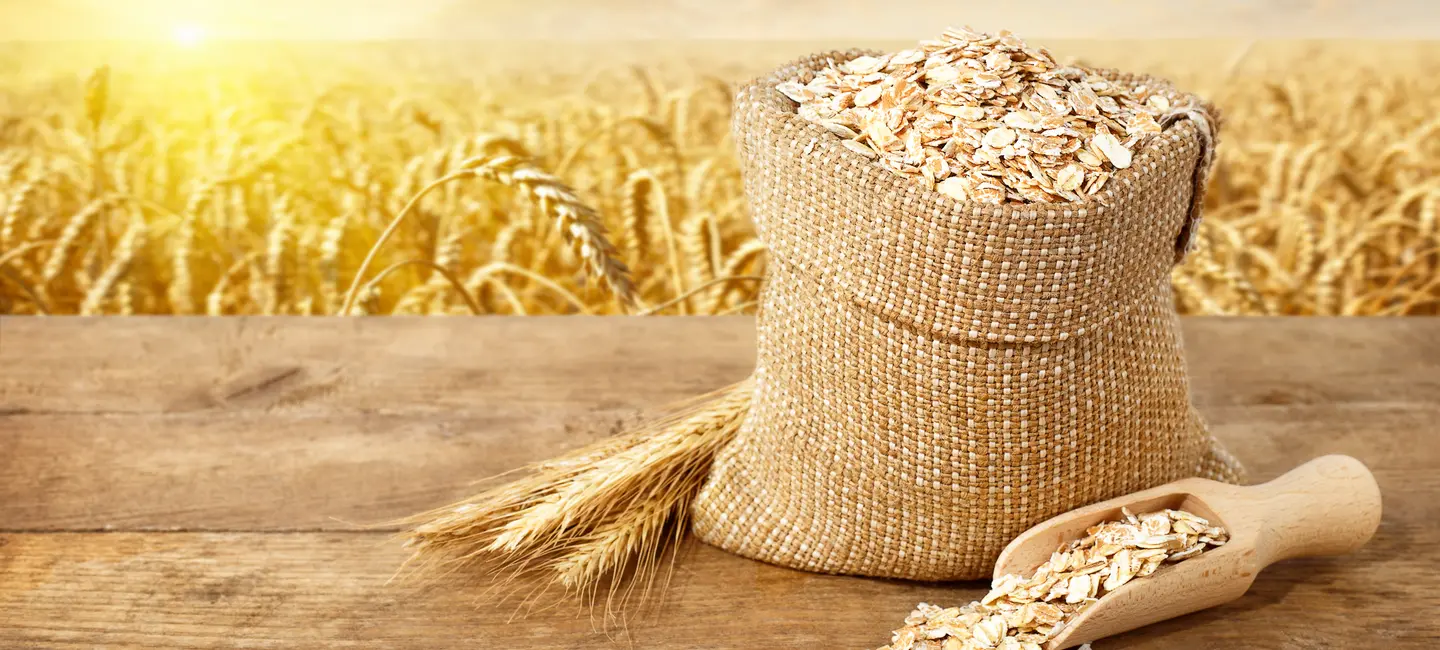
Oat (Avena sativa) is a type of cereal grain. People often eat the plant's whole seeds (oats), outer seed layers (oat bran), and leaves and stems (oat straw).
Oats might reduce cholesterol and blood sugar levels, and help control appetite by making you feel full. Oat bran might work by keeping the gut from absorbing substances that can lead to heart disease, high cholesterol, and diabetes. Oats seem to reduce swelling when applied to the skin.
Oat bran and whole oats are used for heart disease, high cholesterol, and diabetes. They are also used for high blood pressure, cancer, dry skin, and many other conditions, but there is no good scientific evidence to support these other uses.
Is It Effective?
NatMed Pro rates effectiveness based on scientific evidence according to the following scale: Effective, Likely Effective, Possibly Effective, Possibly Ineffective, Likely Ineffective, Ineffective, and Insufficient Evidence to Rate.
- Heart disease. Oats contain fiber. Eating a diet high in fiber, such as 3.6 grams of oats daily, reduces the risk for heart disease.
- High cholesterol. Eating oats, oat bran, and other soluble fibers can somewhat reduce total and low-density lipoprotein (LDL or "bad") cholesterol when consumed as part of a diet low in saturated fat.
- Diabetes. Eating a diet rich in whole grains, including oats and oat bran, might help prevent diabetes. It might also help improve blood sugar control and lower cholesterol levels in people with diabetes.
- Stomach cancer. Eating high-fiber foods, such as oats and oat bran, seems to lower the risk of stomach cancer.
- Colon cancer, rectal cancer. Regularly eating oat bran or oats doesn't seem to lower the risk of colon or rectal cancer.
There is interest in using oats for a number of other purposes, but there isn't enough reliable information to say whether it might be helpful.
Is it Safe?
When taken by mouth: Oat bran and whole oats are likely safe for most people when eaten in foods. Oats can cause gas and bloating. To minimize side effects, start with a low dose and increase slowly to the desired amount. Your body will get used to oat bran and the side effects will likely go away.
When applied to the skin: Lotion containing oat extract is possibly safe to use on the skin. Putting oat-containing products on the skin can cause some people to have a rash.
Special Precautions & Warnings:
Pregnancy and breast-feeding: Oat bran and whole oats are likely safe when eaten in foods during pregnancy and breast-feeding.
Celiac disease: People with celiac disease must not eat gluten. Many people with celiac disease are told to avoid eating oats because they might be contaminated with wheat, rye, or barley, which contain gluten. But in people who haven't had any symptoms for at least 6 months, eating moderate amounts of pure, non-contaminated oats seems to be safe.
Disorders of the digestive tract including the esophagus, stomach, and intestines: Avoid eating oat products. Digestive problems that could extend the length of time it takes for your food to be digested could allow oats to block your intestine.
Insulin
Interaction Rating=Moderate Be cautious with this combination.
Oats might reduce the amount of insulin needed for blood sugar control. Taking oats along with insulin might cause your blood sugar to drop too low. Monitor your blood sugar closely. The dose of insulin might need to be changed.
Medications for diabetes (Antidiabetes drugs)
Interaction Rating=Moderate Be cautious with this combination.
Oats might lower blood sugar levels. Taking oats along with diabetes medications might cause blood sugar to drop too low. Monitor your blood sugar closely.
Herbs and supplements that might lower blood sugar: Oats might lower blood sugar. Taking it with other supplements with similar effects might lower blood sugar too much. Examples of supplements with this effect include aloe, bitter melon, cassia cinnamon, chromium, and prickly pear cactus.
There are no known interactions with foods.
Oats are commonly eaten in foods. For health benefits, adults should eat whole oats providing at least 3.6 grams of soluble fiber daily. Speak with a healthcare provider to find out what dose might be best for a specific condition.
Avena, Avena Fructus, Avena byzantina, Avena orientalis, Avena sativa, Avena volgensis, Avenae Herba, Avenae Stramentum, Avoine, Avoine Entière, Avoine Sauvage, Cereal Fiber, Colloidal Oatmeal, Dietary Fiber, Farine d'Avoine, Fibre Alimentaire, Fibre Céréalière, Fibre d'Avoine, Folle Avoine, Grain d'Avoine, Green Oat, Green Oat Grass, Groats, Gruau, Haber, Hafer, Oat, Oat Bran, Oat Fiber, Oat Flour, Oat Fruit, Oat Grain, Oat Grass, Oat Herb, Oat Straw, Oat Tops, Oatstraw, Oatmeal, Oats, Paille, Paille d'Avoine, Porridge, Rolled Oats, Son d'Avoine, Straw, Whole Oat, Whole Oats, Wild Oat, Wild Oat Herb, Wild Oats Milky Seed.
Information on this website is for informational use only and is not intended to replace professional medical advice, diagnosis, or treatment. While evidence-based, it is not guaranteed to be error-free and is not intended to meet any particular user’s needs or requirements or to cover all possible uses, safety concerns, interactions, outcomes, or adverse effects. Always check with your doctor or other medical professional before making healthcare decisions (including taking any medication) and do not delay or disregard seeking medical advice or treatment based on any information displayed on this website.
© TRC Healthcare 2024. All rights reserved. Use and/or distribution is permitted only pursuant to a valid license or other permission from TRC Healthcare.
